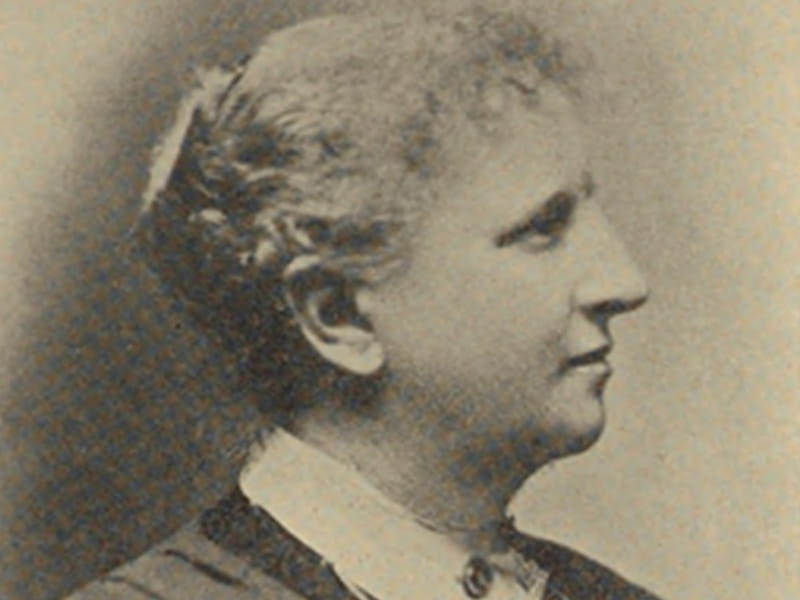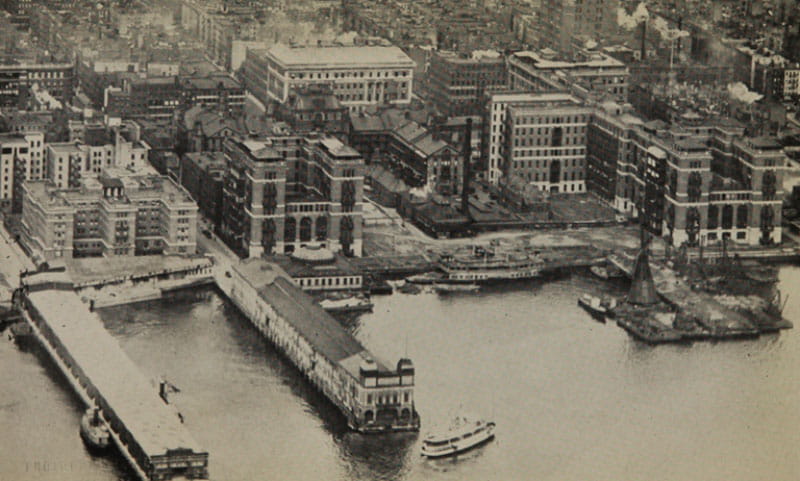Early last century, this social worker changed cardiac care

Over a century ago, care for people with heart disease took a pivotal turn, embracing more than just patients' medical needs.
The year was 1911. Limited national statistics of the day showed "organic diseases of the heart" as the No. 2 killer, behind all forms of tuberculosis. Heart patients were called "cardiacs" — and their prospect of receiving post-hospital medical supervision and holding a job seemed just about impossible.
That's when social worker Mary E. Wadley set a new course for these patients.
Wadley — founder and head of the social service unit at New York City's historic Bellevue Hospital — was concerned about the many heart patients who needed convalescent care and to find work. In a February 1938 letter recounted in the Journal of the American Medical Association in 1943, she detailed the problem:
"Scores of cardiacs discharged from the wards were referred to Social Service for convalescent care and for assistance in finding suitable employment. This we could do, but continued medical oversight was imperative if they were to carry on. For most of them, this oversight was obtainable only in the day clinics, and day clinics and jobs were incompatible. The situation was most distressing to patients, to physicians, and to the hospital."
Wadley urged Bellevue medical staff to start an evening clinic. In 1911, Dr. Hubert V. Guile took up the cause, opening and directing the Bellevue Hospital Social Service Cardiac Clinic for Working Adults. The clinic, which served as a prototype for other clinics, was open on Friday nights, allowing patients to rest over the weekend before returning to work on Mondays.
In his 1996 book "American Cardiology: The History of a Specialty and Its College," cardiologist and medical historian W. Bruce Fye noted that the Bellevue cardiac clinic's "focus on the social implications of heart disease reflected the fact that it was inspired by a social worker rather than a physician."
Pioneering cardiologist Alfred E. Cohn, in the 1943 JAMA article, described Wadley as "a distinguished worker in this vineyard of the Lord."
"In the history of the development of interest in cardiac diseases Miss Wadley played an important even if not a conspicuous part," Cohn wrote in "The First Cardiac Clinic," a correspondence memorializing Wadley. "She was the first one to recognize the fact that cardiac patients were receiving less care than they deserve or than it was possible to give to them."

A distinguished career
A native of Concord, Massachusetts, Wadley graduated from Bellevue School of Nursing in 1884, according to her 1942 obituary in The New York Times.
Public affairs specialist Lorinda Klein, who worked at Bellevue from 1970 to 2005, said the Bellevue Hospital Auxiliary — organized in 1906 and consisting of wealthy, progressive, suffragist women — started the social work department and hired Wadley, initially to assist patients with TB. Wadley was the department's director for 20 years.
In that role, she saw patients with all kinds of illnesses, not just heart disease, being discharged and considered cured, according to a 1914 article in the Mexico (Missouri) Ledger. But the patients needed follow-up care and had a lot of convalescing to do. And with breadwinners unable to work, the rest of the family suffered.
Wadley worked with the auxiliary to enlist financial support from wealthy families and philanthropic donors to aid patients and their families. Among other assistance, workers from the social service unit visited the homes of infants who had been hospitalized to teach their mothers how to help them recover.
"Bellevue Hospital had thousands and thousands of patients coming in, and they recognized that there's a tremendous need to get these patients organized," said Klein, who managed the hospital's historical collection and served on its auxiliary. "They were not blind to where these patients came from and their living conditions."
Keeping entire families in mind, Wadley also was a supporter of Prohibition, the period from 1920 through late 1933 when alcohol consumption was banned in the U.S., according to the 2016 book "Bellevue: Three Centuries of Medicine and Mayhem at America's Most Storied Hospital" by David Oshinsky.
"We almost never see now a pile of furniture on the sidewalk with a starved, dispossessed family sitting in it," Wadley said in a 1925 address. "Instead the children are decently clothed, the men are keeping their jobs better and paying their bills. They do not have to pass the inviting door of the corner saloon on payday."
Kindness, intelligence
Wadley served on the first Board of Directors of the Association for the Prevention and Relief of Heart Disease, a precursor to the American Heart Association, from 1915 to 1917. Two American Heart Association founders, Drs. Lewis A. Conner and Robert H. Halsey, were also early directors.
A 1919 article in the Nashville (Tennessee) Banner described Wadley as "a small, alert woman with ash brown hair and blue eyes in which kindness is the companion of intelligence."
She retired in 1926, according to her obituary, and spent many years living in Atlantic City, New Jersey. The Bellevue Hospital Auxiliary hosted a retirement luncheon for her at the Colony Club on Park Avenue, said Klein, who recalls Wadley's after-hours cardiac clinic disbanding around the early 1990s.
Wadley spent the last year and a half of her life living with family in Albany, New York. She died Oct. 7, 1942, at age 90. A memorial plaque, placed at Bellevue as part of the New York Heart Association's 50-year celebration in 1965, commemorates the clinic and the contributions of Wadley and Guile.
Wadley's legacy at Bellevue is significant, Klein said.
"My understanding is she sort of really whipped everything into shape," Klein said. "I think she must have been formidable."




